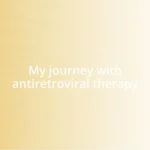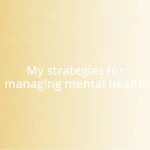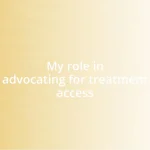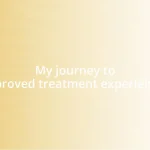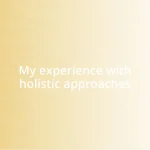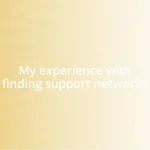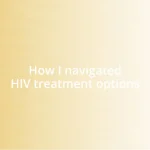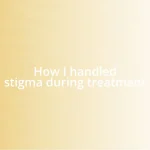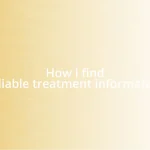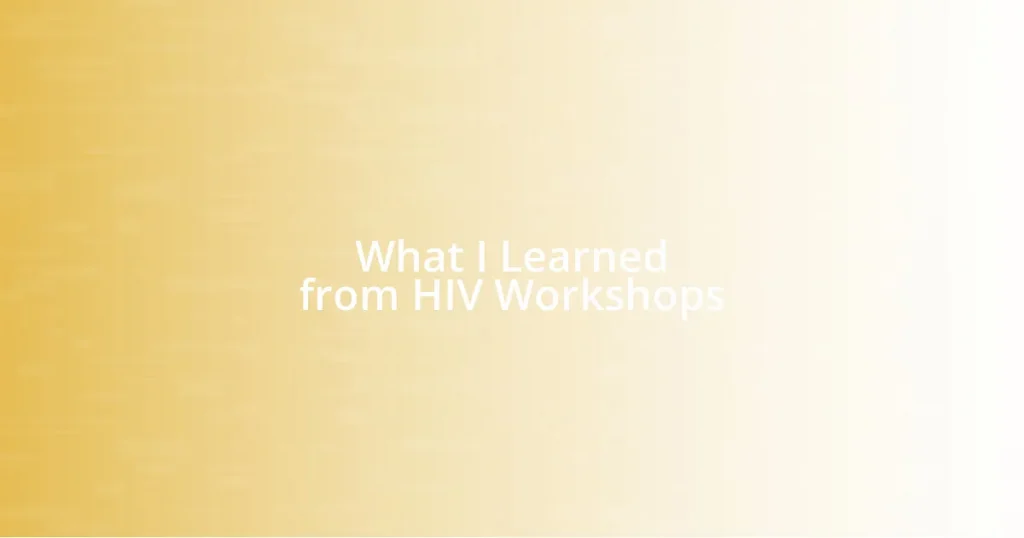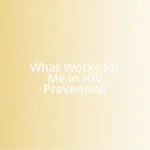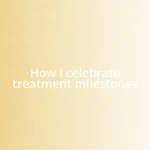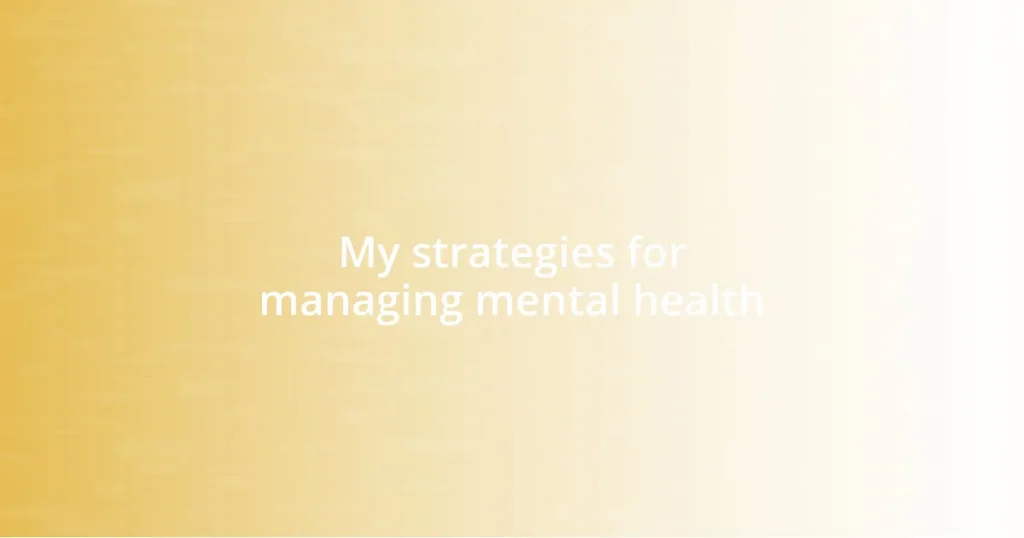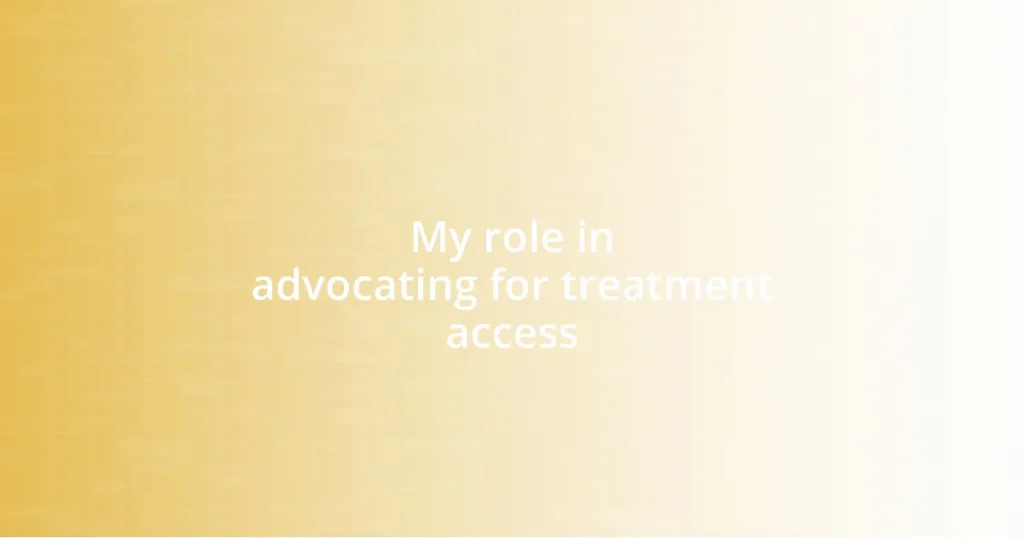Key takeaways:
- HIV is a virus that attacks the immune system, and it cannot be transmitted through casual contact; understanding this can reduce stigma and promote inclusion.
- HIV workshops foster community and provide essential knowledge, empowering attendees to advocate for themselves and combat misinformation.
- Effective communication strategies, such as active listening and storytelling, enhance understanding and create safe spaces for dialogue about HIV.
- SELF-care and ongoing education are crucial for managing stigma and improving health outcomes in both individuals and communities affected by HIV.
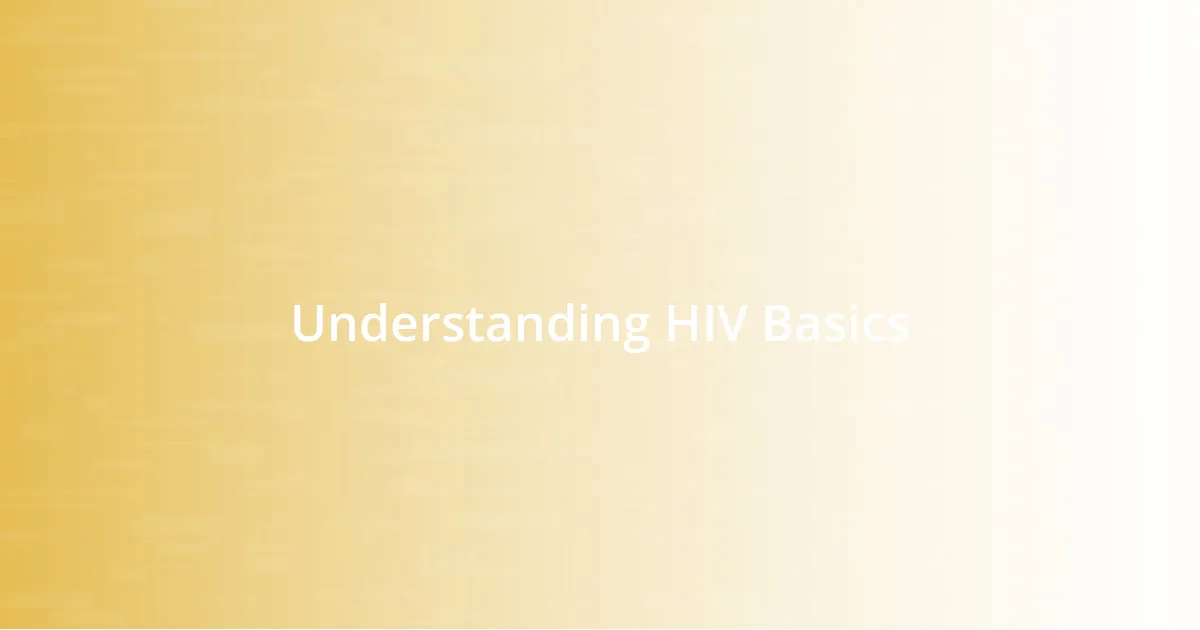
Understanding HIV Basics
Understanding HIV starts with recognizing that it’s a virus that attacks the immune system, specifically targeting CD4 cells, which play a crucial role in our body’s ability to fend off infections. I remember sitting in my first workshop, feeling overwhelmed by all the medical terminology. Suddenly, it hit me how vital it is to break this down—HIV isn’t just a word; it represents real lives, including my own interactions with friends and communities facing stigma and misunderstanding.
One of the most eye-opening moments for me was learning that HIV cannot be transmitted through casual contact. This realization shifted my perspective completely. I often think about how many people might isolate themselves out of fear—not just those who are HIV-positive, but also those who may avoid friendship due to misconceptions. Shouldn’t we all strive to create environments where everyone feels safe and included?
Additionally, realizing the difference between HIV and AIDS was crucial. HIV is the virus, while AIDS is the condition that can develop if HIV isn’t treated effectively. I recall the sigh of relief that spread through the room when someone shared their experience of living well with HIV, thanks to medication. It made me wonder: how many narratives like theirs go unheard? Understanding these distinctions helps diminish the fear that surrounds such discussions, paving the way for more open dialogues.
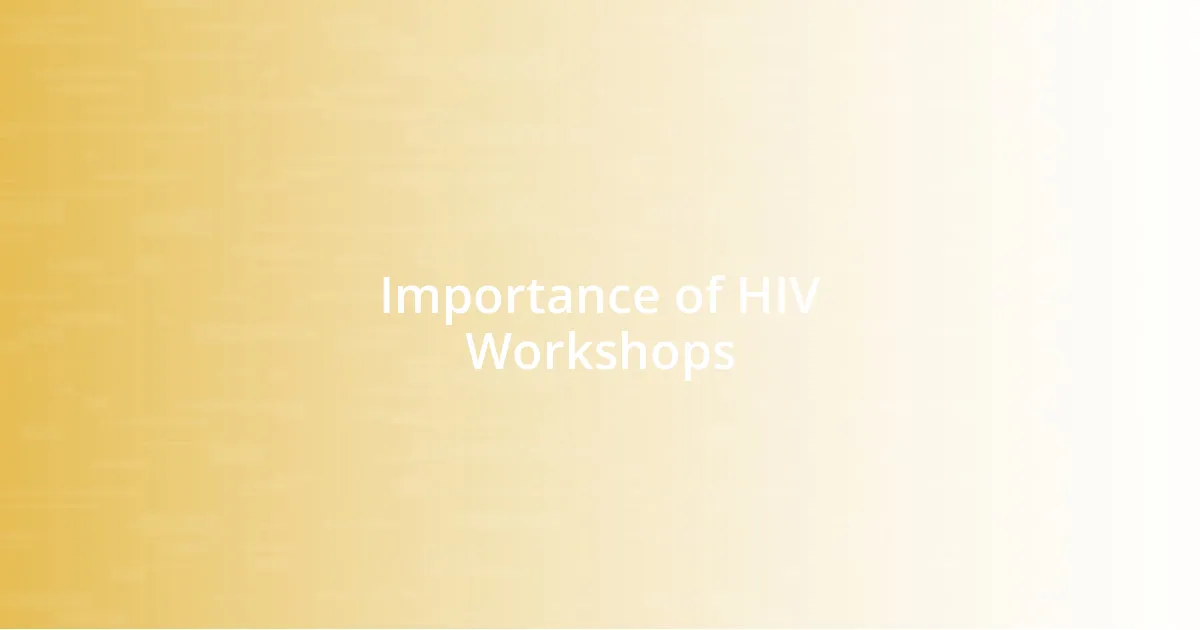
Importance of HIV Workshops
HIV workshops hold immense importance not just for the knowledge they impart, but for the community they foster. I vividly recall a workshop where attendees shared their stories. Listening to someone openly discuss their journey with HIV made me realize that these gatherings aren’t just about facts. They’re safe spaces for vulnerability, healing, and connection. The power of shared experiences can break down the walls of isolation and fear.
Moreover, these workshops equip individuals with practical tools to navigate their own lives and aid others. For instance, I learned about the importance of regular testing, not just for oneself but as an advocate for friends and family. It was an eye-opener to discuss how misinformation can spread and worsen stigma. This prompted me to host small discussions in my community to spread awareness. It energized me to take action, showing me that knowledge can truly be a catalyst for change.
Finally, I can’t stress enough how these workshops help in understanding the latest advancements in treatment and prevention. I remember feeling a surge of hope when I learned about pre-exposure prophylaxis (PrEP) and how it’s drastically reduced infection rates. Knowing that tools exist to prevent transmission made me eager to inform others. Wouldn’t it be incredible if more people understood they have options? This realization highlights how critical workshops are in bringing forth current, life-changing information.
| Aspect | Importance |
|---|---|
| Community Building | Fosters connection and support among participants. |
| Knowledge Sharing | Equips individuals with essential knowledge and practical tools. |
| Awareness of Advances | Informs on the latest treatment and prevention options. |
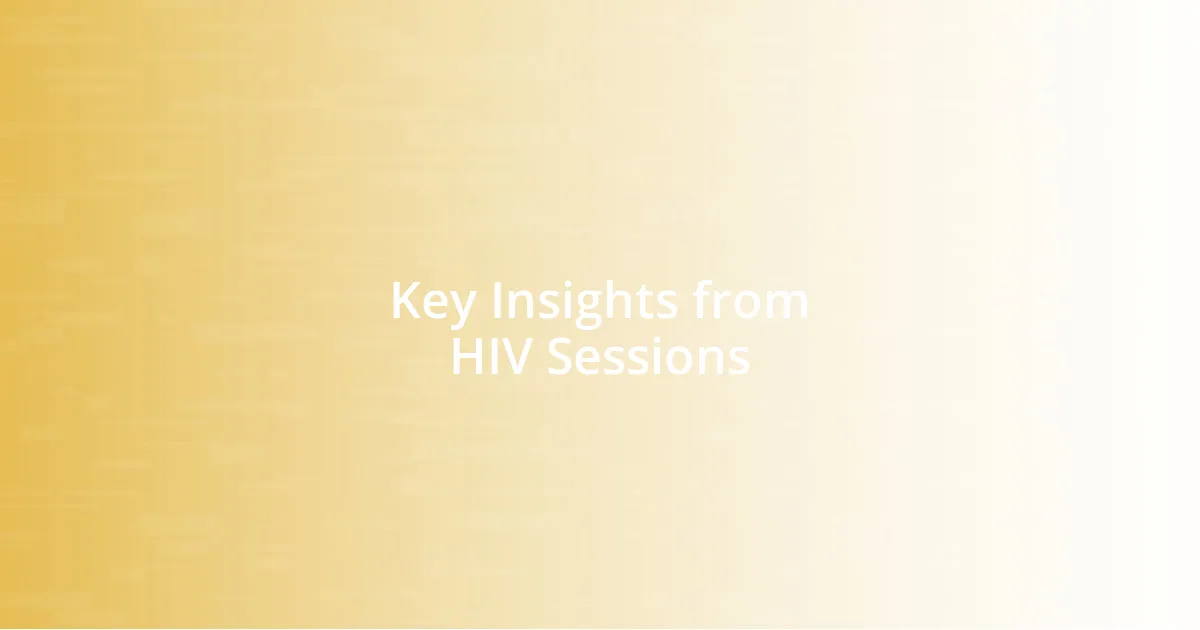
Key Insights from HIV Sessions

Key Insights from HIV Sessions
Through participation in various HIV workshops, I’ve gained invaluable insights that go beyond the basics. One of the most significant lessons was the emphasis on empathy; understanding someone’s journey with HIV allows us to foster a more compassionate community. I recall an impactful moment when a participant shared how they felt invisible due to their diagnosis—this struck me deeply and reminded me of the power our words carry.
- Empathy is essential: Many people are navigating complex emotional landscapes; understanding this creates support networks.
- The impact of stigma: Workshops highlight how deeply stigma affects those living with HIV, reinforcing the need for open conversations.
- Knowledge empowers action: Workshops teach not just about the medical aspects but also how to advocate for oneself and others effectively.
I also found that practical skills learned in these workshops are transformative. I remember a session dedicated to communication tactics, which empowered me to discuss HIV more confidently with friends and family. The attendees practiced scenarios, and I felt an exhilarating rush of clarity when we tackled tough questions together. Sharing these experiences with peers made me realize how critical it is for everyone to feel equipped to challenge misinformation.
- Communication skills: Role-playing scenarios helped me find my voice in discussing HIV-related topics with loved ones.
- Addressing misinformation: Learning to combat myths was liberating; it reinforced my responsibility to share accurate information.
- Building resilience: Workshops foster resilience among participants, encouraging us to tackle stigma collectively and confidently.
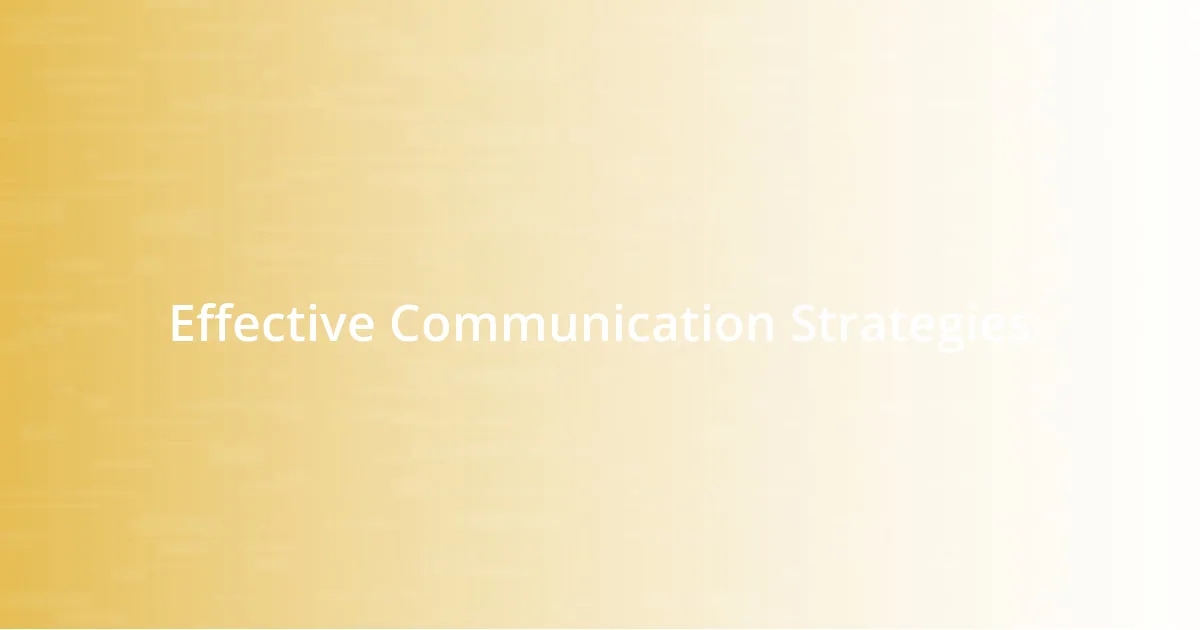
Effective Communication Strategies
One powerful communication strategy I discovered is the use of active listening. During a workshop, I engaged in an exercise where we paired up and shared our thoughts about living with HIV. I learned that simply being present and genuinely listening to someone’s experience can create a bond that words alone often fail to establish. It made me reflect—how often do we assume we understand someone’s situation without truly listening? This skill not only fosters acceptance but also gives others the confidence to open up about their feelings.
Another effective approach is storytelling. I remember an enlightening discussion about how personal narratives can demystify HIV and break barriers of misunderstanding. After hearing participants share their stories, I was inspired to share my own experience with stigma. The stories transformed the atmosphere; suddenly, the heavy topic felt lighter, more manageable. Isn’t it incredible how a well-told story can shift perspectives? I realized that by sharing my journey, I could invite others to share theirs, creating a ripple effect of openness and support.
Additionally, I discovered the importance of non-verbal communication. At one workshop, we were encouraged to observe body language and tone when discussing sensitive topics. I reflected on how often we overlook these signals in conversations about HIV. I shared a moment where I may have unintentionally conveyed judgment through my posture while talking about someone’s struggle with the disease. Learning to be mindful of these cues not only enhances understanding but also cultivates a safe space for dialogue. How many connections could be strengthened if we were more aware of what our body language communicates?
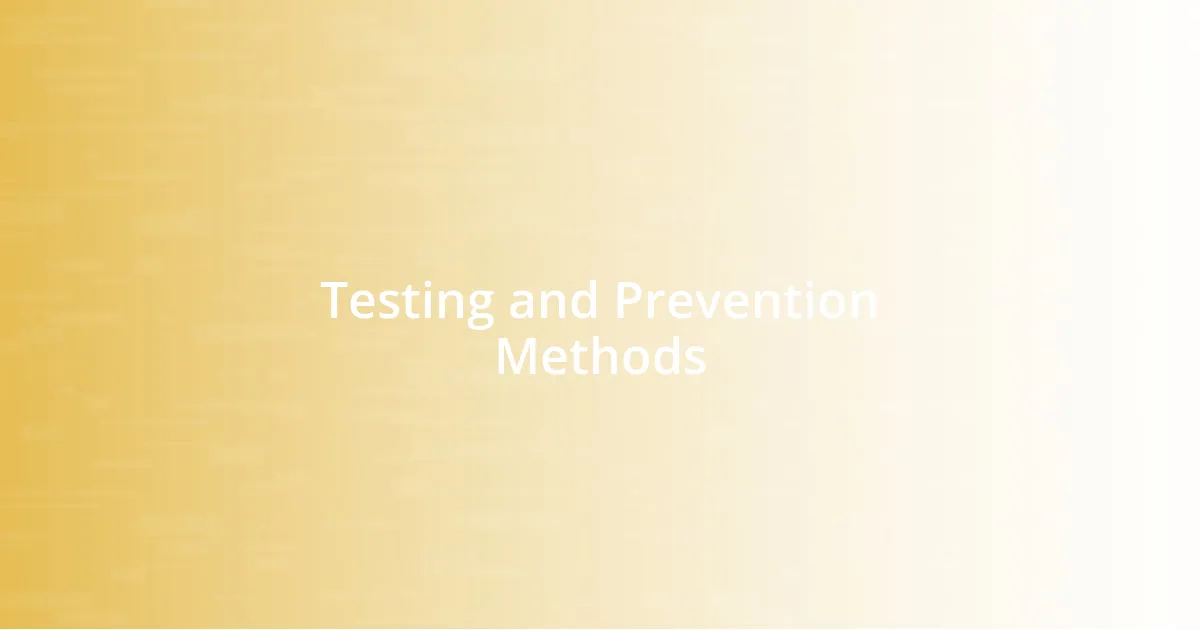
Testing and Prevention Methods
I can’t emphasize enough how pivotal HIV testing is in the fight against the virus. One workshop I attended included a practical demonstration on self-testing kits, which really opened my eyes. I remember thinking about how empowering it can be for individuals to take control of their health in private, without the immediate pressure of a clinical setting. This kind of accessibility can significantly reduce anxiety around testing—don’t you think knowing your status can bring peace of mind?
Prevention methods, like PrEP (pre-exposure prophylaxis), were another crucial topic discussed. I vividly recall a session where a healthcare professional explained how effective PrEP is in significantly reducing the risk of HIV transmission. It resonated deeply with me, especially when they shared success stories of people who adopted it as a regular practice. This medication offers a powerful line of defense, and I couldn’t help but wonder how many lives could be improved by increasing awareness about it.
Then there’s the importance of practicing safe sex. In a smaller group discussion, we delved into the various barriers people face in using condoms consistently. Personally, I found it eye-opening to hear how societal pressures and misconceptions influence these behaviors. I remember sharing my own hesitations from my younger days, which sparked a rich discussion about the psychology behind these choices. It left me thinking, wouldn’t it be wonderful if we could create a more open atmosphere around topics like this so that everyone feels comfortable prioritizing their safety?
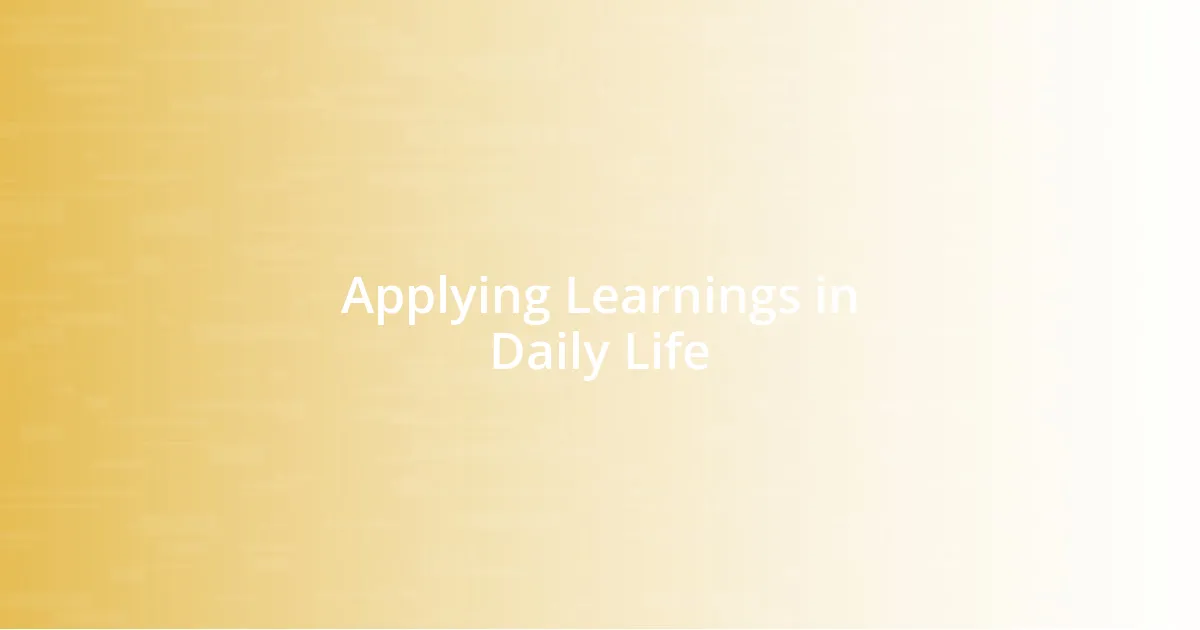
Applying Learnings in Daily Life
I find that integrating the lessons from HIV workshops into daily life is not just beneficial—it’s essential. For instance, after attending a session on stigma, I made a conscious choice to challenge my own prejudices. I remember a moment when a friend shared their experience with HIV, and instead of reacting with surprise or judgment, I responded with empathy. That day, I realized how crucial it is to create a space where people can feel accepted, making our conversations richer and more authentic.
Another aspect that resonates with me is the commitment to ongoing education. After learning about the latest prevention methods, I took it upon myself to share this knowledge within my community. I organized a small gathering, and as I spoke about PrEP and other preventive measures, I noticed the audience’s curiosity grow. Isn’t it remarkable how discussions about health can empower others to take charge of their well-being? That shared knowledge often leads to tangible changes in behavior, reminding me of the ripple effect we can create simply by talking about what we’ve learned.
I’ve also started practicing self-care more intentionally after the workshops. At one point, a facilitator emphasized the connection between mental health and managing chronic conditions like HIV. It struck me deeply. I began setting aside time for mindfulness practices, ensuring that I remain mentally and emotionally balanced. How often do we prioritize self-care in our busy lives? By nurturing myself, I feel better equipped to handle difficult conversations and support others, ultimately fostering a more compassionate environment for everyone.
